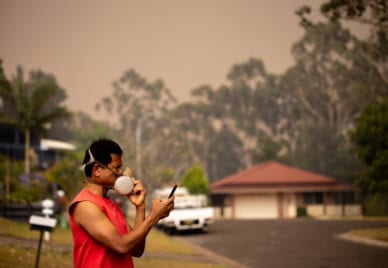
Aggregating and Integrating Data on Health Outcomes Associated with Bushfires at a National Scale
Exploreabout Aggregating and Integrating Data on Health Outcomes Associated with Bushfires at a National Scale
Current methods of monitoring fish populations involve high costs for manually processing and extracting data from underwater cameras. The FishID project aims to transform environmental monitoring of aquatic ecosystems in Australia through automated detection and identification of animals in underwater imagery.
The FishID platform has overcome the cost associated with manually processing and extracting data from underwater cameras by creating a user-friendly, public-facing end-to-end pipeline for deep learning detection and automated identification of animals.
FishID is a robust and intuitive system for researchers to annotate imagery, train and evaluate deep learning models to accurately detect, identify and count species of interest across coastal and marine ecosystems.
The project involved the following elements:
Use FishID, which fills a critical infrastructure gap between the collection of underwater imagery and the resulting data made available in national repositories. It will enable a step-change in monitoring efficiency that will improve outcomes across multiple spaces, including:
Researchers, federal and state government, farmers, environmental educators and tourism operators will benefit from the project’s core features: